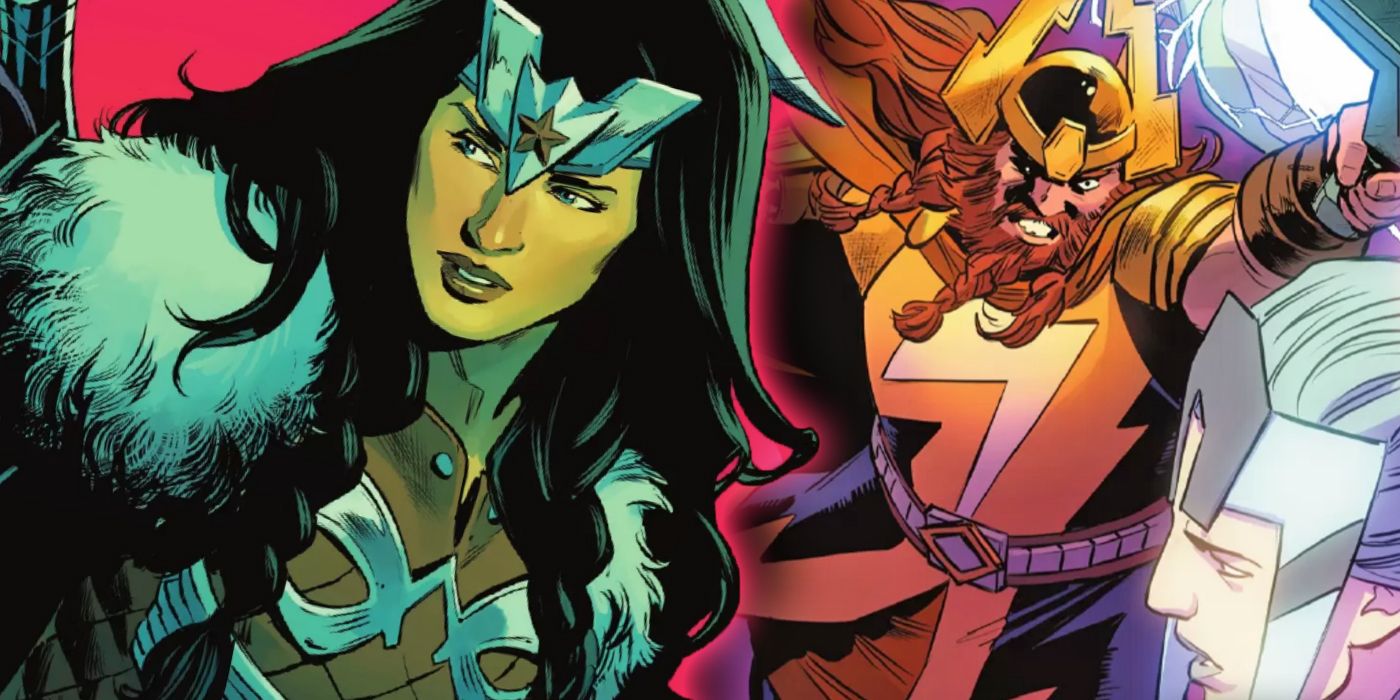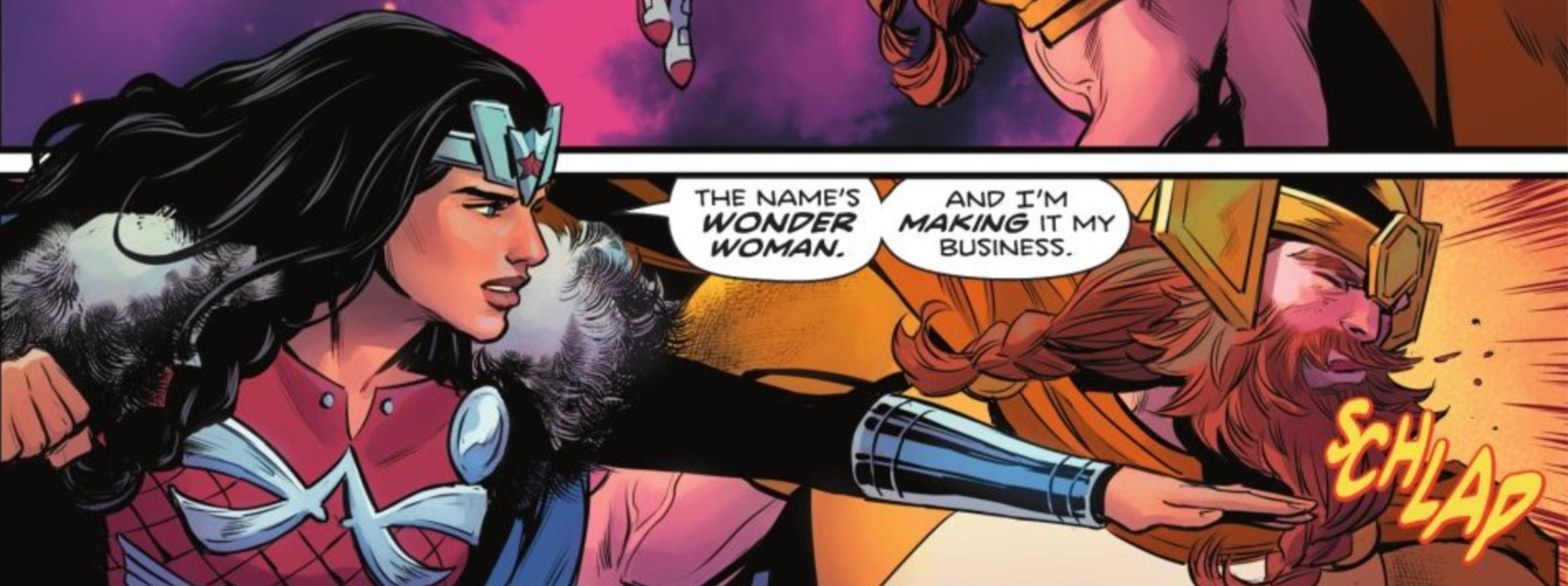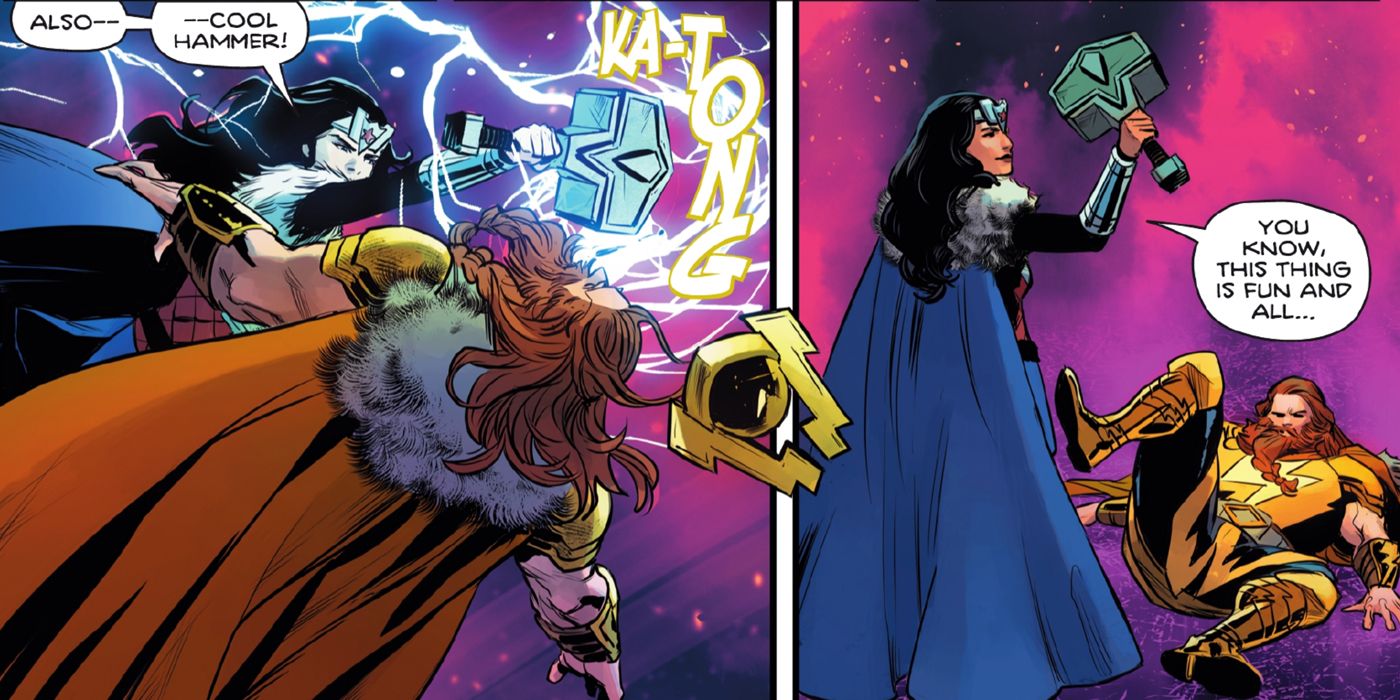WARNING: The following contains major spoilers for Wonder Woman #773 by Michael W. Conrad, Becky Cloonan, Travis Moore, Tamra Bonvillain and Pat Brosseau, on sale now.
In recent issues of Wonder Woman, Diana has been faced with a whole host of new challenges. In the wake of Dark Nights: Death Metal, an amnesiac Diana was flung into the afterlife before ending up in DC's version of Asgard. Of course, many comic book readers are familiar with Marvel's version of Asgard, the home of the iconic Marvel hero, Thor. However, DC's interpretation is quite different from the one that Wonder Woman has come to know.
As opposed to the all-powerful god-king known in the Marvel Universe, the Odin of this Asgard is a thin, odd-looking recluse who hangs out in trees. And rather than the somewhat villainous and beastly Ratatoskr known to Marvel fans, the Ratatosk of the DC Universe is a kind little squirrel who befriends Wonder Woman and serves as her ally. However, One of the biggest differences from Marvel's Asgard is the depiction of Thor.
While Marvel's Thor might be one of its mightiest heroes, DC's Thor is a far less impressive kind of god, and Wonder Woman just gave him a piece of her mind.
Despite his relative obscurity compared to his Marvel counterpart, DC's Thor has actually been around for much longer, making his debut in Comic Cavalcade #17 by William Moulton Marston and Harry G. Peter all the way back in 1946. Unlike the honorable and heroic Thor from Marvel's pantheon, however, DC's Thor is an absolute blowhard. DC's Thor aggrandizes himself every chance he gets. He sees the battle as only a bloodsport, disregarding the lives that are lost or taken. He belittles Diana at almost every turn, making it fairly obvious that he does not view her (or likely any woman for that matter) as an equal.
Throughout her time in Asgard, Diana has been trying to warn Thor that souls keep disappearing from Asgard. However, Thor simply brushes aside Diana's concerns, seeing it as nothing Diana should concern herself with. It turns out, obviously, that Diana was right to be worried. The Valkyries, after spending centuries cleaning up after the Asgardians, have gone on strike and have refused to replenish Asgard's souls. While Diana is in their hall trying the diplomatic approach, however, Thor and a team of Asgardians interrupt them to try and solve the problem by force, and in his fervor, he attacks Diana.
After regaining her memories, Diana proceeds to put this misogynistic and pompous version of Thor in his place by dealing him a resounding defeat. She even crushes his Mjolnir in her bare hands after she beats him with it.
From a reader's perspective, this beating almost seems like it's specifically designed to humiliate Thor. Though, it's completely understandable that Diana wants to humiliate this version of Thor, as he's essentially the avatar of chauvinism. After Diana embarasses him, he even claims that he "let" Diana beat him: a lie that likely nobody believes.
Aside from this run-in with DC's version of Thor, it's worth noting that Diana actually does have a history of sorts with Marvel's Thor as well. Throughout the years, DC and Marvel have crossed over on several occasions. Not only has Wonder Woman met Thor and the other Avengers, but she has even proven herself worthy of wielding Mjolnir. In fact, she famously used Mjolnir during her battle with Storm during the 1996 DC vs. Marvel crossover. And while Diana eventually lost that fight, it was in part due to Diana choosing not to continue to use Mjolnir as she believed it gave her an unfair advantage over Storm.
What the outcome of this battle means for how Wonder Woman would stack up against Marvel's Thor, however, is unclear. It's not known if DC's Thor is comparable in power to Marvel's Thor. But, Diana can at least say, without doubt, that she trounced one god of thunder.



